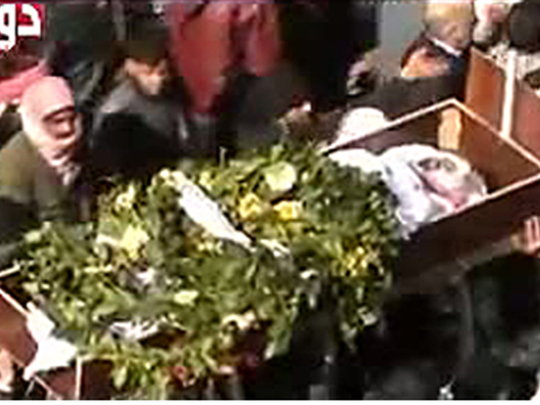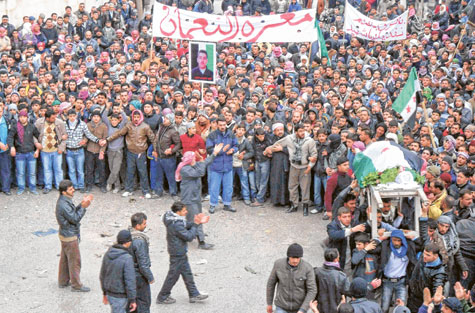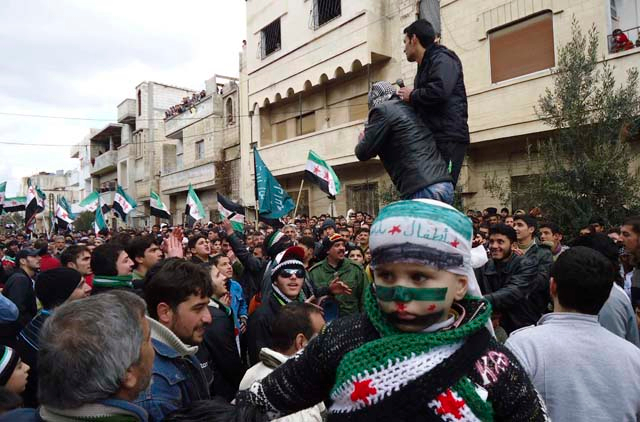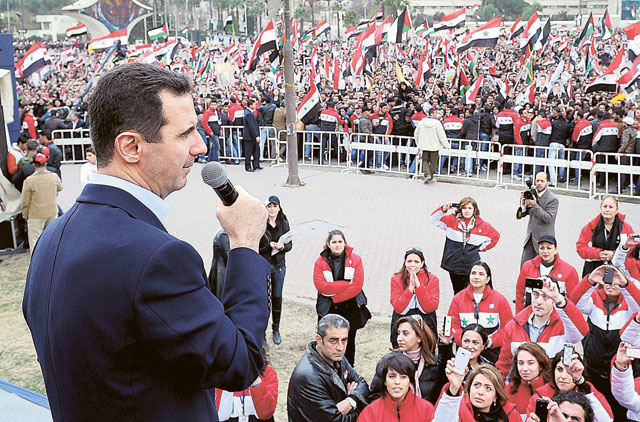
Beirut: Syria's foreign minister has signalled that his country will continue its 10-month crackdown on dissent.
Walid Al Muallem said Tuesday it's the duty of the government to take any steps it sees necessary to 'protect against chaos'.
Sanctions
Sanctions were causing an economic crisis in Syria, Al Muallem said. But he vowed that Damascus would not yield to such pressure.
"There is no doubt that any kind of sanctions affect the population but they do not affect the political situation," Al Muallem said during the news conference.
His statement comes a day after EU foreign ministers slapped fresh sanctions against Syria's military brass.
His news conference came one day after President Bashar Al Assad's regime rejected an Arab-brokered plan to end the country's bloodshed.
Arab League monitors
Earlier Al Muallem said Syria was studying a request to extend the Arab League's monitoring mission, its Foreign Minister Walid Al Muallem said.
He said some Arab countries had joined a conspiracy against his country.
Al Muallem also said Russia would not accept any foreign intervention in its old ally Syria.
Red line
"Our relations with Russia are deep-rooted," he told a news conference in Damascus. "Russia cannot accept foreign intervention in Syria. That is a red line."
Al Muallem spoke at a news conference on Tuesday, one day after President Bashar Assad's regime rejected an Arab-brokered plan to end the country's bloodshed.
The plan announced Sunday calls for a unity government within two months, which would then prepare for parliamentary and presidential elections to be held under Arab and international supervision.
Syria has long held that a foreign conspiracy is behind the country's 10-month uprising, not peaceful protesters seeking change.
Observers to be withdrawn
Earlier Gulf Arab states announced that they had decided to pull their observers sent to Syria as part of an Arab League mission out of the restive country, they announced in a joint official statement on Tuesday.
"Gulf Cooperation Council states have decided to follow Saudi Arabia's decision to pull out its observers from the Arab League mission in Syria," the GCC statement said.
The GCC includes Saudi Arabia, Kuwait, Qatar, Bahrain, Oman and the United Arab Emirates.
UN Security Council
Gulf Cooperation Council states on Tuesday urged UN Security Council members to pile pressure on Syria to implement an Arab League plan to end unrest in the restive country.
The six GCC states call on "members of the UN Security Council ... to take all needed measures at the Security Council to press Syria to implement the Arab League decisions and the Arab initiative on Syria," the monarchies said in a joint statement.
The statement said the GCC was "certain the bloodshed and killing of innocents would continue, and that the Syrian regime would not abide by the Arab League's resolutions".
The League had urged Syrian President Bashar Al Assad on Sunday to step down over his bloody crackdown on a 10-month-old revolt in which thousands of Syrians have been killed. Saudi Arabia had already withdrawn its monitors, and called for "all possible pressure" on Damascus.















